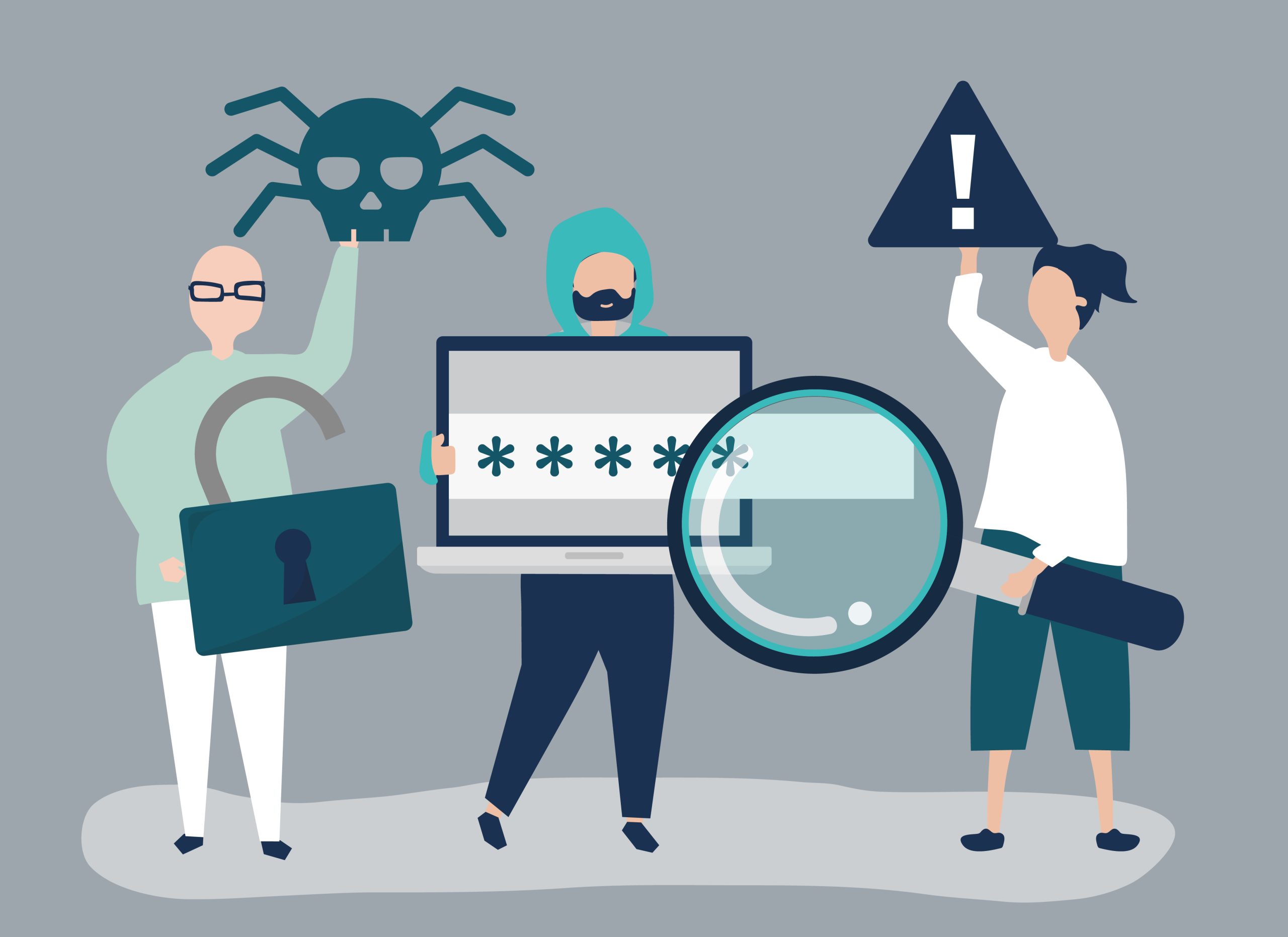
Modern anti-fraud algorithms can detect the use of proxies. Proxy services help users hide connections to bypass geographical restrictions or protect personal information. But they are also used by scammers to hack sites or steal information.
That’s why defenses use proxy detection to understand how users connect to websites, figuring out malicious agents who are masking their data.
Why anti-fraud systems pay attention to proxy servers
The security of a resource depends on how an anti-fraud system works. There are several reasons why antifraud systems pay attention to proxies, all of them are aimed at content protection, so they are constantly being improved to reduce risks:
- Identity hiding. Proxy servers hide the IP address, which makes it difficult to track users. This is a problem for antifraud, as it relies on this data to detect fraudulent activity.
- Restriction circumvention. Proxies are used to bypass geographic or access restrictions set by websites. Which helps fraudsters access services or content they shouldn’t be able to access.
- Fraud. VPN servers are used by fraudsters to steal personal information, hack into accounts, or conduct financial transactions.
Therefore, antifraud makes sure to pay attention to proxies to better protect users and your own resources from fraudulent activities.
How an anti-fraud system works
Antifrod systems see the use of a proxy server. This software system or engine analyzes transactions and user behavior to prevent, detect, and respond to criminal activities, using a variety of methods and technologies to detect and prevent fraud, including the following:
Antifraud monitors volumes of data collected from various sources to detect anomalies and unusual patterns of behavior. For example, analyzing a transaction by parameters: location, amount, time, to identify suspicious activity.
The software tracks and analyzes user behavior to determine if it is anomalous or similar to known fraudulent schemes. For example, session times, frequency of login sources, and user activity.
Artificial intelligence algorithms are used to detect and predict suspicious activity. For example, based on historical data, the program can build ways to create new fraudulent schemes.
Continuous monitoring allows you to respond quickly to suspicious activity by blocking access or rejecting transactions until further verification is performed.
The principle of antifraud depends on the specific purpose and application. Thus, both businesses and end users are protected from cyber threats and loss of revenue.
How antifraud systems see the use of a proxy server
Detection occurs by analyzing the IP address. The program compares the IP to known lists of good and bad addresses, as well as to proxies or VPNs. So, as anti-fraud systems see the use of proxies by analyzing the server from which the request comes. The program determines reliability by answering the following questions:
- Is the user really where they say they are?
- Are they trying to connect to a service they shouldn’t be accessing?
- Are they using suspicious technology designed to alter their IP address?
- Are they likely to be fraudsters or cybercriminals?
The answer to the last question can only be answered by combining proxy detection with other methods such as risk assessment, identity verification or behavioral analysis. Here’s how antifraud detects proxy use. In sum, it automatically avoids many online crimes, without the need for human resources.

How to avoid false positives of antifraud systems
Of course, automatic anti-fraud is convenient, but mistakes happen and each of them must be dealt with separately. Therefore, in order not to react to such triggers, it is worth using the following tips:
- Establish an operational baseline. This will help you understand which transactions are normal for your organization and which may be suspicious.
- Divide the risk into different categories. Once there is a clear idea that the team is able to process data quickly, there will be a chance to develop strategies to manage resources for the best defense against fraud.
- Review and update policies. They have a responsibility to remain relevant and effective.
- Automate fraud detection processes. Automation is able to scan many transactions at high speed, paying attention to small discrepancies.
- Review fraud prevention procedures. Look at all risk rules, consider whether they are too expansive or strict.
- Sandbox testing of risk rules. A reliable way to determine false positive rates.
If all aspects are followed, antifraud can handle the influx of visitors to the site without requiring human resources for protection.
Why it is important to update and improve antifraud systems
As technology advances, cybercriminals are constantly looking for new ways to bypass defences, making regular updates to anti-fraud systems essential. Modern fraud schemes are becoming increasingly sophisticated and can include the use of artificial intelligence, as well as the use of sophisticated proxy networks to hide real user data. Without updates, anti-fraud systems risk becoming vulnerable to new types of threats, which can lead to data breaches, lost revenue and reputational risks.
Continuous improvement of anti-fraud algorithms and analysis of new behaviours allows systems to adapt faster to changing conditions, identify suspicious activity and take proactive measures. It’s also important to test and tune antifraud settings for specific tasks and environments to reduce the likelihood of false positives. These actions help not only to detect fraudsters, but also to maintain a high level of user trust, ensuring safe and comfortable access to resources.
Tips for ensuring anonymity and security when using proxies
Anonymity and security of the user remains a necessary part of visiting the web. This can be ensured in affordable and legal ways to protect not only the account, but also Internet payments, messengers and e-mail messages from hacking. Whether to use each suggested method separately or jointly is up to everyone to decide for themselves, but 2-3 technologies are still necessary to resist fraudsters:
- Use mobile proxies;
- Use paid proxy resources;
- Choose an appropriate level of anonymity;
- Use a vpn connection;
- Choose a browser that respects privacy;
- Use anonymous search engines;
- Use secure email applications;
- Protect your social media settings.
Don’t neglect protection, even if you don’t frequent social media or use online stores for shopping. Even getting a chance to save yourself from having your email hacked with sending unsuitable content will already feel good.
FAQ
1. Can anti-fraud systems detect that I am connecting through a proxy?
- Yes, modern anti-fraud systems can detect the use of proxies. They analyse your IP address and match it against databases containing known proxy and VPN addresses. If your IP matches a proxy or VPN address, the system will pick up on that.
2. What signs indicate to the antifraud system that a proxy is being used?
- The main signs are an IP address that may be known to the proxy, frequent IP changes (dynamic IP addresses), and anomalous parameters such as mismatched geolocation, time zone, and network information, which is common when using a proxy.
3. What happens if the anti-fraud system detects a proxy?
- If the system detects that you are connecting through a proxy, it may restrict access, require additional verification (such as two-factor authentication), or even block actions, especially if such connections are associated with risky or suspicious activity.
4. What type of proxy is the hardest for anti-fraud systems to detect?
- Mobile proxies are considered more difficult to detect because they use dynamic IP addresses of mobile operators, mimicking the behaviour of real users. Highly anonymous (or ‘elite’) proxies also do not transmit data indicating proxy usage, which reduces the risk of detection.
5. Can I avoid detection by an anti-fraud system when using a proxy?
- It is impossible to completely avoid the risk of detection, but using paid mobile proxies, VPNs with strong encryption, and highly anonymous proxies can reduce the likelihood of detection. It is also important to observe natural behaviour and avoid suspicious activity to avoid attracting the attention of anti-fraud systems.






